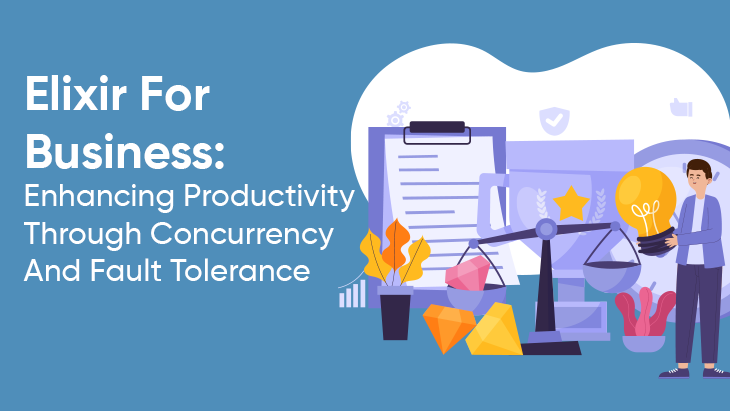Elixir, developed on the reliable Erlang VM (BEAM), is gaining traction among businesses prioritizing concurrency and fault tolerance in their software solutions. An Elixir development company can exploit the language’s robust features to build highly scalable and resilient applications, distinguishing it from traditional programming environments. This language's design is particularly suited for applications that require high availability and responsiveness, even under substantial load.
Concurrency: A Core Strength of Elixir
One of Elixir’s key features is its exceptional concurrency support, which stems from its Erlang foundation. Concurrency in Elixir is not just a performance enhancement; it is a fundamental aspect of the language, allowing it to handle multiple tasks simultaneously without the typical overhead associated with threading in other programming languages.
The Actor Model: Simplified Concurrent Processes
Elixir implements the actor model through processes. These are lightweight and run concurrently, each with their own state and environment. They communicate through message passing which decouples the processes and enhances fault tolerance. Here’s a simple example of spawning multiple processes in Elixir:
defmodule Concurrency Example do
def send_message(pid) do
send(pid, {:hello, "from #{inspect(self())}"})
end
end
list_of_pids = for _ <- 1..10, do: spawn(ConcurrencyExample, :send_message, [self()])
This example creates ten separate processes that run concurrently, showcasing how Elixir can easily manage concurrent operations, making it ideal for real-time applications.
Fault Tolerance: Building Resilient Systems
Elixir’s approach to fault tolerance is closely tied to its concurrency model. It inherits the 'let it crash' philosophy from Erlang, which encourages the development of systems that are designed to fail without catastrophic consequences and recover gracefully.
Supervision Trees: Automated Recovery
In Elixir, supervision trees are structures that monitor the health of processes. If a process fails, its supervisor can automatically restart it according to a predefined strategy. This model is crucial for creating systems that can maintain their operations despite failures. This built-in resilience makes Elixir particularly appealing for critical systems where downtime can have significant repercussions.
Performance and Scalability: Maximizing Resources
While Elixir excels in managing multiple processes concurrently, it also efficiently uses system resources to ensure scalability. The ability to scale out across multiple nodes and handle thousands of connections per node makes Elixir an excellent choice for high-traffic applications, such as web servers and databases.
Benchmarking Against Other Languages
Compared to Python or Ruby, Elixir can handle more concurrent connections with lower latency, thanks to its non-blocking I/O and lightweight process model. This is critical in environments where performance and response times are key business metrics.
Seamless Maintenance and Upgrades
The immutable nature of Elixir code and its strong support for functional programming principles lead to cleaner, more maintainable code bases. Elixir's hot code swapping capability, which allows updating code without stopping the system, is invaluable for businesses that require high availability.
Why Businesses Are Turning to Elixir
For businesses that depend on high availability, responsiveness, and system integrity, Elixir offers compelling advantages. Its powerful features for handling concurrency and fault tolerance make it an excellent choice for modern applications facing the challenges of scaling and managing state across distributed systems. As businesses continue to demand more from their technology investments, Elixir’s development approach provides a strategic advantage, ensuring that enterprises can not only meet their current needs but are also well-prepared for future challenges.














Post Comments